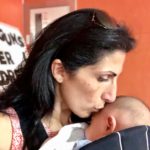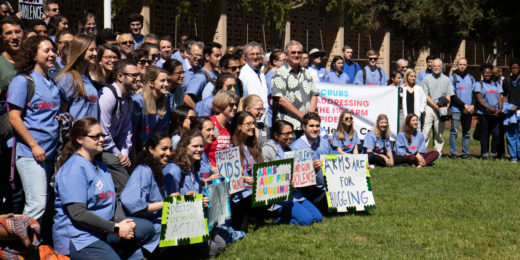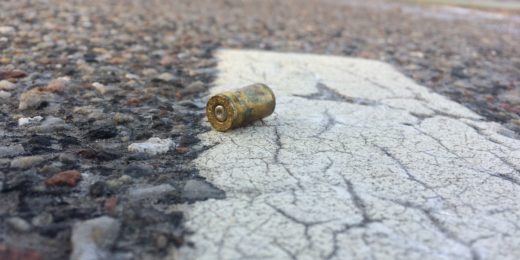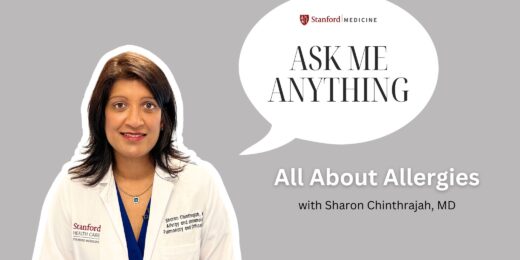Note: Certain details in this entry have been omitted or changed to protect the identity of those involved.
She was 4 months old, beautiful, crying -- and she had a gunshot wound to her head.
It was around midnight when a police officer drove over the curb at our ambulance bay, ran into the emergency department with a baby cradled in his arms and yelled in a broken voice, "I need help! There's a baby with a GSW to the head!"
The charge nurse immediately paged a critical trauma and pointed the officer to the trauma bay. He ran in and set the baby down gently on the gurney.
I was an emergency medicine attending physician just a few years past residency. My senior resident, my co-attending, and two nurses ran into the trauma bay with me. What we initially saw and heard will forever be embedded in our minds: a beautiful baby girl crying and whimpering in pain with her eyes closed, her head wrapped in a towel covered in blood, in a decorative onesie. She was an innocent victim, sitting in her car seat at her uncle's home when gunfire erupted outside.
We quickly started resuscitating, my colleague at the foot of the gurney leading the effort. The trauma team arrived, then the pediatric ICU team, then the pediatric neurosurgeon.
I was standing at his right side near the baby's head. I supervised the intubation, placed the central venous line and hung the blood for transfusion, intermittently looking up and reporting back to my colleague after each step. That is what we do: Each of us assigned a role, reporting what we see, intervening, reporting the effect of that intervention. It can feel protocol-driven and at times robotic. But this was anything but robotic; our hearts were broken.
We usually know if someone has a chance to survive within 30 minutes or so into our efforts, and we knew she would not, given the extent of her gunshot wound. We fought for the young life and regained her pulse at times. And so we kept at it for two hours. We kept fighting, we kept trying.
But then the trauma attending said, "Team, it's done... There's nothing more that we can do."
We stopped, we looked at each other, we knew he was right. Some slowly stepped back from the gurney, others bent over it, and all of us put our heads down -- in sadness, in anger, in prayer.
I realize now that we were fighting not only for this baby's life, but for much more. We didn't want this epidemic of gun violence to win -- not on our watch, not with this adorable baby. We were tired -- tired of gun violence taking yet another life senselessly, adding to the war veteran who shot himself in the head, the victim of domestic violence from the enraged spouse, the toddler killed after his sister was playing with a gun, and the thousands of victims in our collective careers that we have tried to save from gunshot wounds.
As members of the resuscitation team trickled out the trauma bay, I touched the top of her right hand, paused in apology, and then walked out. I felt defeated, with my eyes filled with tears that I didn't want to show. I'm an emergency physician. I'm supposed to be strong.
Outside the trauma bay I heard heart wrenching crying from another room. It was her mother. My heart dropped -- she knew. When my colleague went to tell her that she died, I leaned back against the wall and waited in the hallway outside of her room, my head low, knowing what would come next.
There are vocal sounds that only come from a person after they're told their child has died. It came -- I felt it in my core. It has never left me.
I stood there to support my colleague, to be there for the mother. As I heard my colleague say "We did everything we could," the tears poured down my face; one of only three times I have cried in all my years as an emergency physician.
I thought, "I'm sorry. I'm SO SORRY! I'm sorry I couldn't save her. I'm sorry for your emptiness that you will forever feel. I'm sorry I haven't done more to change the system for you. I'm just so sorry."
Gun violence -- what it does to victims, their families, the health care system, health care providers -- and the growing societal fear haven't gotten any easier to process. In fact, post-traumatic stress is common among emergency health care providers. Sadly, they're also increasingly victims of gun violence, as evidenced recently at a Chicago emergency department.
There has been a loud call for change: More than 150 medical organizations have published official statements on gun violence. Doctors and nurses have repeatedly stood, marched, and chanted in protest, calling for high-quality, and funded, gun violence research.
Working together matters. Some doctors own guns, many gun owners want sensible gun legislation, and all people want to feel safe. While some see this as a political issue -- a rights issue -- I know at its heart that it's a public health issue.
On that day 10 years ago, I promised that baby that I'll always advocate for better gun laws, show up at every victim of gun violence advocacy event, and demand for what is so long overdue: a cure.
Several months ago, when my own 4-month old baby cried, I re-lived that resuscitation -- it was a trigger. The face, the cry, and the mother's broken heart would enter my thoughts. I wrote this months ago as a way of mending my own invisible wounds. And, this September, at a Stanford SAFE rally just a few steps from where we lost that beautiful baby, I held my son in my arms and continued to fight -- for him and for all of you. I hope others will join me.

Laleh Gharahbaghian, MD, is a clinical associate professor of emergency medicine and medical director of adult emergency medicine at Stanford.
Photo to left courtesy of Laleh Gharahbaghian/Photo above by Shutterstock






